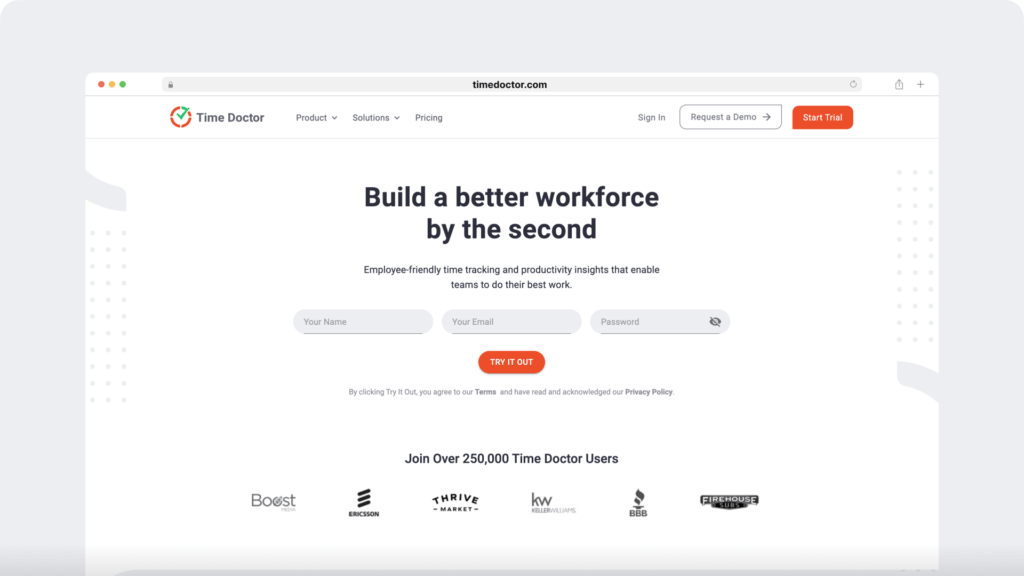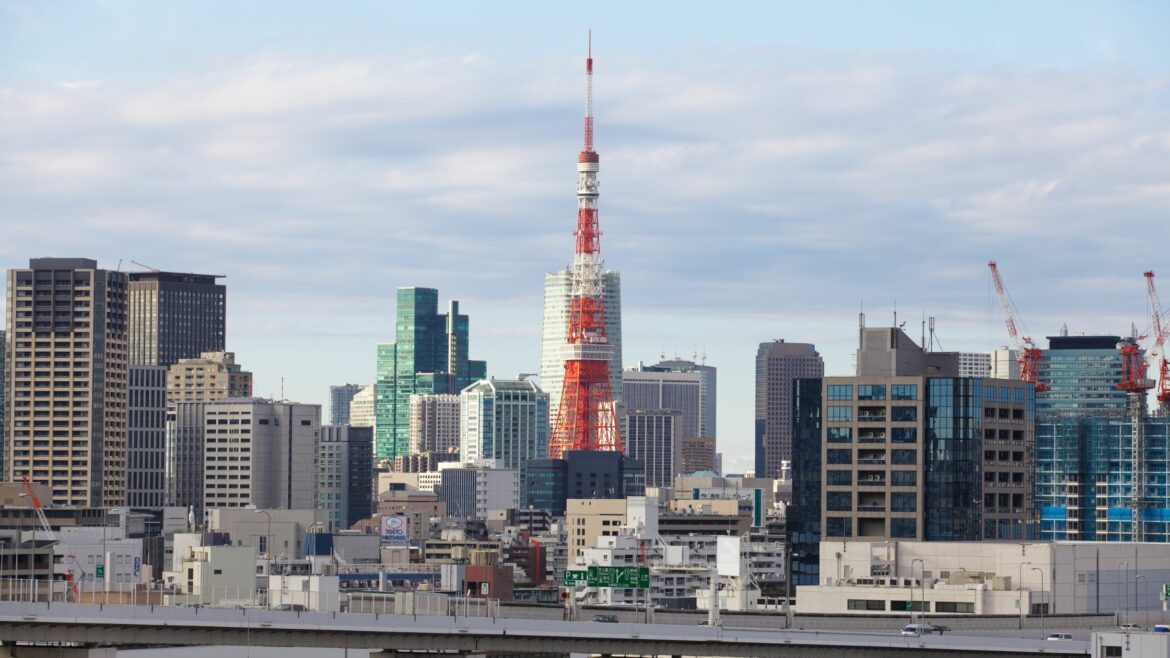Japan is one of the top economies globally, with businesses heavily focused on the automobile, tech, and innovation sectors. It’s a great environment for business expansion and an upcoming market for outsourcing processes.
Wondering how much it’ll cost to hire a Japanese workforce?
The average salary in Japan is 6,200,000 Japanese Yen (JPY) or 39818 USD per year in 2024 (as per the exchange rate in May 2024).
In this article, we’ll explore further details surrounding the average salary in Japan and the factors that influence it. We’ll also cover the annual increment, the highest and lowest-paying jobs, and the country’s economic outlook.

Table of Contents
- Stats on the average salary in Japan
- 4 factors that influence salaries in Japan
- Average salary increment in Japan
- Highest and lowest-paying professions in Japan
- The economic outlook for Japan
- How Time Doctor can help with salary management
Let’s get started!
Stats on the average salary in Japan
The average salary in Japan varies across regions. It also depends on factors, including job location, work experience, education level, and more.
So, considering all of these elements, an employee in Japan earns an average monthly salary of approximately 516,000 Japanese Yen (JPY), according to Salary Explorer. That’s about 3,314 US Dollars (USD).
This average salary figure includes additional benefits like housing and transport.
Now, let’s explore other aspects of the average salary in Japan.
A. The Japanese salary range
The average monthly salary for employees in Japan can range from approximately 130,000 JPY (835 USD) to 2,300,000 JPY (14,771 USD).
Note: The upper range of salaries is the highest average and not the maximum salary Japanese people earn.
B. The median salary
The 2024 median salary in Japan is 472,000 JPY (3,031 USD) per month.
What does a median salary indicate?
The median salary in Japan is 472,000 JPY, which means that half of the population earns less and the other half earns more. The median represents the middle salary value. In general, it’s preferable to be on the side of the graph where the group earns more than the median salary.The median salary is less sensitive to higher or lower extremes on the salary spectrum, which greatly impacts the average value.
Generally speaking, employers should aim to offer hiring packages around the median salary for specific job categories.
C. The minimum wage
Japan typically has a 40-hour workweek and the minimum hourly wage for workers is established by each region’s Regional Minimum Wage Council.
The current national weighted average minimum wage in Japan is 931 Yen. The average rose to 961 yen on April 1, 2023.
However, if employees work overtime, they are entitled to higher wages above their hourly income based on the Labor Standards Act of 1947.
Tokyo workers earn the highest minimum wage in Japan – about 1,113 Yen (7.16 USD) per hour – comparable to other high-income international cities like Hong Kong and Seoul. The difference between Tokyo and other Japanese regions is that it has more business operations and better infrastructure.
Note: All salary figures provided in this article are averaged and intended as general guidelines and not exact values.
Next, let’s explore the various factors that influence salaries in Japan.

4 factors that influence salaries in Japan
Here are four key factors that play a role in determining salaries in Japan:
1. Region
Tokyo offers the highest average salary in Japan as it has many big corporations and a larger business market. It’s followed by cities like Yokohama and Osaka.
Here’s a list of the average salaries by region:
| City | Average Salary/ Month |
| Tokyo | 576,000 JPY (3,703 USD) |
| Yokohama | 566,000 JPY (3,639 USD) |
| Osaka | 557,000 JPY (3,581 USD) |
| Nagoya | 547,000 JPY (3,517 USD) |
| Fukuoka | 528,000 JPY (3,394 USD) |
| Kyoto | 507,000 JPY (3,259 USD) |
| Kawasaki | 497,000 JPY (3,195 USD) |
| Saitama | 487,000 JPY (3,131 USD) |
| Hiroshima | 477,000 JPY (3,067 USD) |
| Okinawa | 390,000 JPY (2,873 USD) |
Source: Salary Explorer and Salary Expert
2. Education level
The average salary in Japan increases based on one’s educational qualifications. The higher an employee’s qualification, the more money they earn. For example:
- Employees with a college or a diploma education earn about 17% more than those who’ve attained a high school level.
- Employees with a bachelor’s degree earn 24% more than employees with a college or diploma education.
- Employees with a master’s degree earn 29% more than those with bachelor’s degrees.
- Employees with a Ph.D. earn 23% more than employees with a master’s degree.
Source: Salary Explorer
3. Experience level
Another key factor in determining an employee’s net income in Japan is their work experience. Generally, employees earn a higher salary if they have more experience.
Here’s the data on how the average salary increases with experience:
| Years of Experience | Average Salary |
| Less than two years or freshers | Starting Salary |
| 2-5 years | 32% more than employees with less than 2 years of experience |
| 5-10 years | 36% more than employees with less than 5 years of experience |
| 10-15 years | 21% more than employees with less than 10 years of experience |
| 15-20 years | 14% more than employees with less than 15 years of experience |
| Above 20 years | 9% more than employees with less than 20 years of experience |
Source: Salary Explorer
Fun Fact: A Japanese company typically requires employees to retire at the age of 60. But some retired employees look for a part time job as the Japanese pension system doesn’t kick in until the age of 65.
4. Industry
The average salary in Japan is further influenced by the job sector. Different industries offer different salaries for working professionals.
Let’s glance at the different average salaries based on industry:
| Industry | Average Annual Salary |
| Medical and Health Care | 10,300,000 JPY (66,218 USD) |
| Science and Technical Services | 8,990,000 JPY (57,796 USD) |
| Real Estate | 7,580,000 JPY (48,731 USD) |
| Education | 7,220,000 JPY (46,417 USD) |
| Finance and Accounting | 7,150,000 JPY (45,967 USD) |
Source: Salary Explorer
Note: Health care professionals don’t necessarily earn the highest salary in Japan. The industry average isn’t a direct indication of each roles’ salary. For example, financial managers may earn a significantly high salary, but the low salary of accounting clerks brings down the industry average.
Read on to know the average annual salary increments in Japan.
Average salary increment in Japan
Employees in Japan receive an average salary increment of about 8% every 16 months. The 16-month period is mostly attributed to the fact that appraisals rarely happen exactly on a yearly basis.
This increment may vary based on industry and experience level. The salary increase with experience is mostly due to companies incentivizing experienced employees to retain their services.
The data below highlights the annual increment rates across different industries and experience levels in Japan.
A. Annual increments as per industry
Here are the increments based on industries in Japan:
| Industry | Annual Increment |
| Banking | 8% |
| Energy | 7% |
| Information Technology | 6% |
| Healthcare | 5% |
| Travel | 4% |
| Construction | 3% |
| Education | 2% |
Source: Salary Explorer
B. Annual increments as per experience
Here are the increments based on experience level in Japan:
| Experience Level | Annual Increment |
| Junior | 3%-5% |
| Mid-career | 6%-9% |
| Senior | 10%-15% |
| Top Management | 15%-20% |
Source: Salary Explorer
Note: Thriving businesses tend to offer higher annual increments and frequent raises. That said, the increments usually depend on the economic situation of the region or country during the year.
So, which are the best paying roles in Japan?
Highest and lowest-paying professions in Japan
Let’s look at the average net income based on job roles in Japan.
A. Highest paying professions
Here are the jobs that offer the highest average salary in japan:
| Job Title | Average Salary/ Month |
| Dentist | 1,290,000 JPY (9,503 USD) |
| Chief Executive Officer | 1,220,000 JPY (8,987 USD) |
| Chief Financial Officer | 1,150,000 JPY (8,472 USD) |
| Attorney | 1,080,000 JPY (7,956 USD) |
| Dietitian | 1,020,000 JPY (7,514 USD) |
Source: Salary Explorer
Fun Fact: The average income of a Japanese player in the Fukuoka SoftBank Hawks professional baseball team amounted to around 6,900,000 JPY (59,822 USD) for the 2021 season. The team earns the highest salary of all other Japanese professional baseball teams.
Note: The amount mentioned above isn’t the actual maximum salary of those roles and only an average of multiple professionals in the same role.
B. Lowest paying professions
Here are the professions that earn the lowest salary in Japan:
| Job Title | Average Salary/ Month |
| Waiter | 163,000 JPY (1,201 USD) |
| Customer Service Representative | 201,000 JPY (1,481 USD) |
| Automotive Mechanic, Nursery Teacher | 203,000 JPY (1,495 USD) |
| Call Center Representative, Retail Cashier | 207,000 JPY (1,525 USD) |
| Human Resources Officer | 331,000 JPY (2,438 USD) |
Source: Salary Explorer
Waiters earn the lowest salary in Japanese society. That said, they still fall under the minimum tax bracket.
What’s the minimum income required for a Japanese employee to pay tax?
Anyone earning above or below the base level of 1,950,000 JPY a year (162,500 JPY a month) must pay tax to the National Tax Agency.
Other popular jobs and their monthly salary include a business analyst (642,000 JPY), teacher (411,000 JPY), and information technology manager (841,000 JPY).
Fun Fact: One of the preferred jobs for foreigners in Japan is that of an English teacher. The job offers an average base salary of 200,000 JPY (1,473 USD).
Moreover, foreigners don’t need to have any prior teaching experience but must have a bachelor’s degree to get a work visa.
Finally, let’s look at the job market situation in the country in 2022.
The economic outlook for Japan
4th-largest economy in the world by nominal GDP behind the United States, China, and Germany and the 4th-largest by purchasing power parity (PPP).
There is a strong presence of top businesses, especially Japanese-origin companies like Sony, Honda, Nikon, and more. In fact, there are 41 Fortune Global 500 companies headquartered in Japan.
That said, Japanese markets took a hit during the pandemic. But as of 2022, the market seems to be healing. So, the outlook for jobs in Japan is good and growing.
This offers great opportunities to earn higher salaries for job seekers who can speak the Japanese language. But if they have high demand skills, like English communication and technical knowledge, they don’t need to be proficient in the Japanese language.
The country also has rising call center offshoring operations.
Should you outsource to Japan?
Japan doesn’t have extremely low salaries.
But they have one of the highest per-capita allotments of higher education institutes in the world and are known for their meticulous work ethic. In Japanese society, employees are known for working long hours and working hard.
All the above factors make Japan an attractive outsourcing destination.
How Time Doctor can help with salary management

Time Doctor is a powerful tool designed to help businesses manage their workforce efficiently. Here’s how Time Doctor can assist with salary management:
1. Accurate time tracking
Time Doctor provides precise tracking of employee work hours, ensuring that every minute is accounted for. This accuracy helps businesses pay employees correctly for the time they have worked, eliminating discrepancies and fostering trust.
2. Productivity insights
By analyzing the productivity data, employers can identify high-performing employees and those who might need additional support or training. This information can be crucial for making informed decisions about salary increments and bonuses.
3. Payroll integration
Time Doctor seamlessly integrates with various payroll systems, simplifying the payroll process. With automatic calculation of work hours, overtime, and leaves, payroll management becomes more efficient and less prone to errors.
4. Cost management
For businesses outsourcing to Japan, Time Doctor helps in managing labor costs by providing detailed reports on employee work hours and productivity. This helps in ensuring that the business gets the best value for its investment in the workforce.
5. Remote work management
Time Doctor is particularly beneficial for managing remote teams. It offers features like time tracking, screenshot monitoring, and activity levels, which help ensure that remote employees are working efficiently, thereby justifying their salaries.
By leveraging Time Doctor, businesses can optimize salary management, improve productivity, and ensure fair compensation for their employees, making it an essential tool for any organization looking to streamline its salary processes.
Wrapping up
Hiring entry-level employees in Japan is relatively affordable. The minimum salary ranges between 30,400 JPY to 39,600 JPY (224 USD to 292 USD) per month. But the employee cost can significantly increase for more experienced professionals and complex roles.
Still, Japan is a viable option for your outsourcing needs.
You can go through this article to find the average income in Japan based on different factors. It can help you decide whether outsourcing to Japan is the perfect choice for your business.


